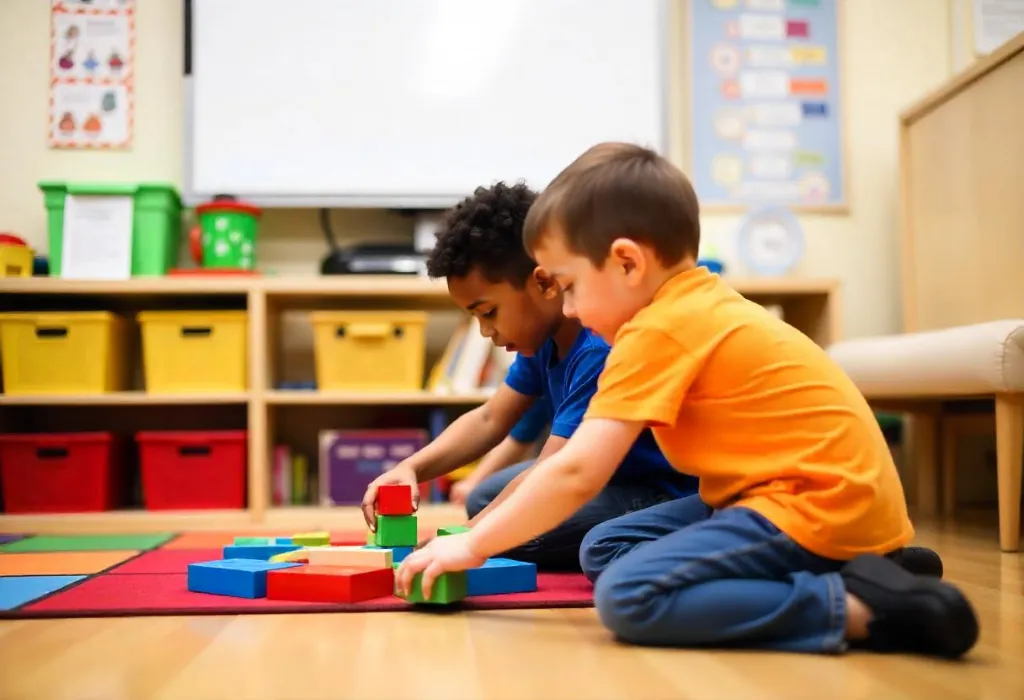🧠Play with a Purpose: How Play-Based Learning Boosts Brainpower
🧠Play with a Purpose: How Play-Based Learning Boosts Brainpower
To the untrained eye, it might just look like children building towers, dressing up as pirates, or racing around the #playground. But in reality, play is powerful, purposeful, and essential. In #early-childhood-education, play isn't just a break from learning — it is learning.
Through imaginative adventures and physical exploration, children #develop critical cognitive, social, and emotional skills — all while having a blast. Let’s take a closer look at how play fuels brain #development and how #educators can harness its full potential.
🎭 Imaginative Play: Where Creativity Meets Cognitive Growth
Pretend play — whether it’s running a make-believe bakery or rescuing stuffed animals from danger — is more than adorable. It’s a mental workout.
When children engage in imaginative scenarios, they:
-
Strengthen problem-solving and reasoning
-
Practice language and communication
-
Explore roles, rules, and routines
-
Express emotions and #empathy
This type of play also boosts executive function skills, like self-regulation, working memory, and flexible thinking — foundational abilities for lifelong learning.
🎓 Want to deepen your understanding of play’s develop #mental benefits? Explore:
👉 Role of Play in Learning
This course breaks down how and why play is critical to early development — and how to make it meaningful in your #classroom.
🤝 Social-Emotional Learning Through Play
From negotiating who gets to be the dragon to taking turns on the slide, play provides countless opportunities for children to:
-
Build relationships
-
Resolve conflicts
-
Understand feelings
-
Develop a sense of self and others
These moments of play build the social-emotional intelligence children need to navigate life. Play creates a #safe space where empathy, patience, and cooperation are not only encouraged but essential.
Looking for a holistic, #playful approach to development?
👉 Play, Learn, Grow
This course is perfect for educators seeking to integrate play with emotional and academic #growth.
🏃♀️ Physical Play: Moving Bodies, Building Brains
Climbing, jumping, running, spinning — these joyful movements do more than release energy. Physical play supports:
-
Gross and fine motor skills
-
Spatial awareness
-
Brain-body coordination
-
Confidence and risk assessment
Outdoor play and active games also contribute to brain development by stimulating neural connections and boosting focus, memory, and mood.
And yes, it’s still considered “learning”! For more insights into how physical activity enhances academic readiness, try:
👉 The Best Promotion is Play
This course connects movement and play with readiness for school — highlighting how active bodies #lead to active minds.
💡 Tips for Purposeful Play in the Classroom
You don’t need flashy toys or rigid #lesson-plans to create a play-rich learning environment. Here’s how to keep play purposeful:
-
Observe and listen: Follow children's interests and let their curiosity lead.
-
Offer open-ended materials: Think blocks, dress-up clothes, art supplies.
-
Ask thoughtful questions: “What do you think will happen next?” or “How did you figure that out?”
-
Join in!: Sometimes a playful adult is the best learning tool of all.
🎉 Final Thoughts: Let the Learning Begin (With Play!)
Play isn’t just fun — it’s formative. When children play, they’re exploring the world, mastering new skills, and building the brainpower they’ll carry with them forever.
As #early-childhood-educators, embracing play-based learning means honoring the way children grow best: through joy, creativity, movement, and connection.
So go ahead — encourage that pirate ship adventure, build that block city, and join the tea party. You’re not just playing — you’re shaping bright minds.
Ready to play with purpose?
Explore all our professional development courses on ChildCareEd.com and discover how playful teaching can unlock powerful learning.
- Lesson Planning for Infants and Toddlers
- Sun safety for children in child care
- The Power of Play: Unleashing Potential in Early Childhood Education
- Managing Behaviors in the Early Childhood Education Classroom
- Creating a Safe Environment for Children in Childcare Centers
- Incorporating Technology in Childcare: Balancing Screen Time and Hands-On Activities
- A comedic article about using playful scenarios to teach kids basic first aid skills
- St. Patrick’s Day Activities for Kids: Fun, Educational, and Easy Ideas for Parents & Teachers
- 🧠Play with a Purpose: How Play-Based Learning Boosts Brainpower
- 🎉Play With a Purpose: How Fun Fuels Cognitive and Motor Development in Kids!🧠🧸
- What’s Going On in a Child’s Brain When They Play?
- 🧩 What Does ABA Look Like in the Classroom? 🎓 What Teachers Should Know
- Early Childhood Education
- 🪁How Can Play Become a Powerful Tool for Supporting Children with Autism?🧩
- Cognitive Development in Early Childhood: Strategies That Actually Work
- What are the autism basics every early childhood educator should know?
- Can activity posts about learning through play attract families and support children’s learning?
- Why Is Play Essential for Your Child’s Development?
- How do we observe with purpose in early childhood assessment?
